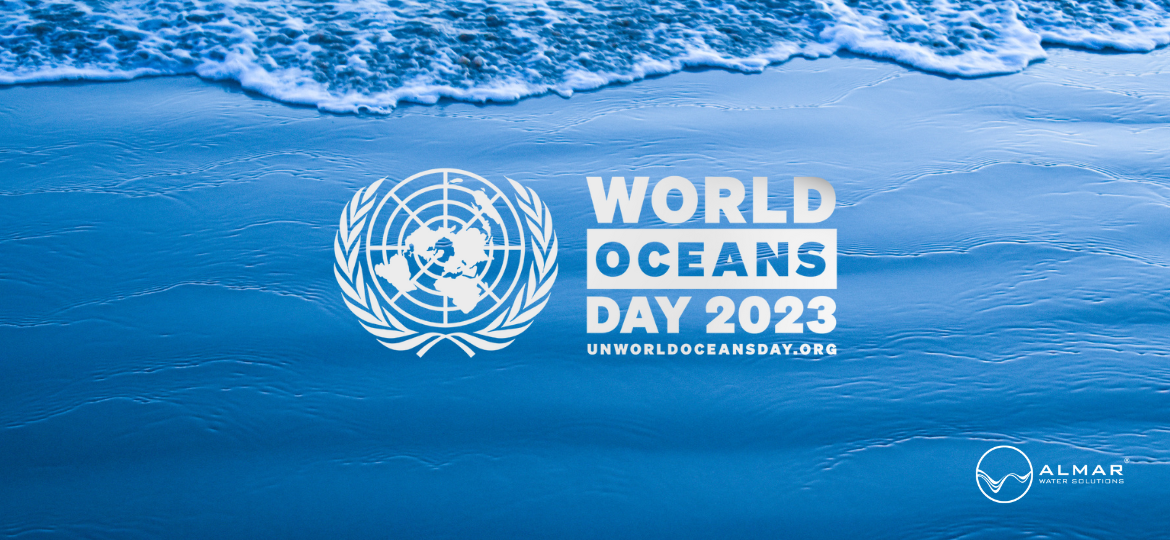
World Oceans Day 2023 | Planet Ocean: tides are changing
We live on a blue planet. That is why, since 2008, we have been celebrating World Oceans Day every 8 June. Today, under the theme “Ocean planet: tides are changing,” it is essential to remember their important role in our lives.
The oceans are the lungs of our planet, producing 50% of the oxygen and absorbing 30% of the carbon dioxide produced. They are an essential source of food and medicine. They are a fundamental part of the biosphere. They are also the basis of a large part of the world economy, supporting different sectors such as tourism, fishing, and international shipping.
Despite all this, human activity is causing the oceans unprecedented threats. An estimated 11 million tons of plastic waste are in the world’s oceans yearly. Eutrophication contributes to dead zones, and nearly 80% of the world’s sewage is discharged untreated.
Planet Ocean: tides are changing
Similarly, climate change damages coral reefs and other vital ecosystems, and overfishing threatens fish stocks’ stability. Today, however, our focus is on the warming of the oceans and seas, as this affects not only their level but also the tides that flow through all the planet’s large bodies of water, the ocean tides.
According to a computer modeling simulation study led by the Scripps Institution of Oceanography at the University of San Diego in the United States, climate change alters surface ocean tides’ mechanics, making them faster and thinner.
This can ripple effect in the ocean, affecting the transport of nutrients needed by different marine organisms and micro-organisms. Faster tides can also affect how the ocean removes carbon and heat from the atmosphere and protects the planet from excessive global warming.
SDG 14: Life below water. Conserve and sustainably use the oceans, seas, and marine resources for sustainable development. Innovation and technology as an ally
Within the Sustainable Development Goals of the United Nations 2030 Agenda, Goal 14: Life below water, focuses on conserving marine biodiversity. In addition, it is essential to maintain certain ideal conditions, such as the temperature and chemical composition of the oceans. It also aims to increase scientific knowledge of the marine environment and strives to reduce water pollution, including waste from land-based activities and nutrient pollution, by 2025.
Non-conventional water resources, such as desalination, ensure water availability, sustainable management, and sanitation for all. Desalination can expand water supply beyond its availability through the hydrological cycle, but innovation in brine management and disposal is required to achieve SDG 14: life below water. Technological innovations are essential to conserve ocean biodiversity and establish a more sustainable economic relationship with the marine environment. In addition, economic opportunities are associated with brine, such as commercial salt, metal recovery, and its use in fish processing systems.
The ocean covers three-quarters of the Earth; global action is needed to protect it. At Almar Water Solutions, we join with the United Nations to protect and revitalize the ocean and all that it sustains. Today, we are raising awareness about the fight against climate change and ocean protection.
By protecting our ocean, we protect our future.
Sources:

